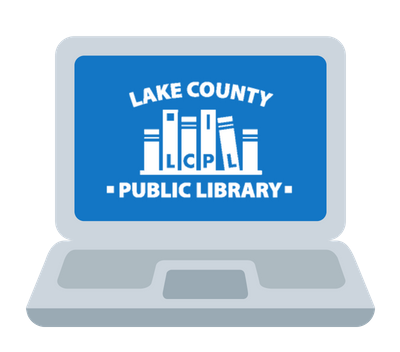All Locations Closed Monday, Nov 10, Due to Winter Storm Warning

Adopted by the Board of Trustees of the Lake County Public Library - 7/24/97
Revised - 6/27/02
Revised - 12/28/23
Reviewed - 11/26/24
Lake County Public Library provides computer and internet access for informational, educational and recreational purposes. This policy covers the management of computer data networks that are owned and administered by the Library.
Skip to: Access - Confidentiality - Responsibilities of Users - Legal Use - Ethical Use - Cooperative Responsibilities - Sanctions - Display and Dissemination of Sexually Explicit Materials - Limitations of Liability - Computer Use by Children - Disclaimer
Staff and patrons who use networks or facilities not owned by the Library will adhere to the policies and procedures established by the administrators of those networks and facilities. (Those policies and procedures can usually be obtained from the network information center of the network in question.)
Use of Library computer resources must follow the guidelines of all of the networks traversed. Staff may use Library computer resources only for purposes related to their duties as employees, their official business with the Library, and other Library-sanctioned activities.
Free wireless access is available for all Library visitors with their own personal laptops and mobile devices. Use is governed by the Library’s Internet & Computer Use policy. Use of the Library’s wireless network is entirely at the risk of the user.
In keeping with the Library’s general policies, information stored on computers is treated as confidential. The Library does not disclose information about an individual’s use of computer resources unless compelled to do so by local, state, or federal law, or approved by the Director or their designee. Viewing information in the course of normal system maintenance does not constitute disclosure.
Information stored by a user on the Library’s public computers will be removed by operating system procedures and software tools at the conclusion of each user session. However, no guarantees can be made in this regard and patrons should exercise caution when exposing any private information.
Computer accounts, passwords and other types of authorization that are assigned to individual users should never be shared with others. Passwords should be changed frequently and users should take steps to avoid being a victim or unwitting distributor.
Ultimate responsibility for resolution of problems related to the invasion of the user's privacy or loss of data rests with the user. The Library assumes no liability for loss or damage to the user's data or devices or for any damage or injury arising from invasion of the user's privacy.
Computer resources are for legal purposes only. Examples of illegal use include, but are not limited to, the following:
Suspicion of illegal activities will result in the suspension of a user’s privileges. Proof of wrongdoing will result in the termination of a user’s privileges.
In addition, abuse of the Library’s computer resources – including using another’s password or account, breaking into restricted areas of the system, accessing other users’ private files or using the Library’s computer resources to distribute malevolent software like computer viruses – is grounds for immediate suspension or termination of a user’s access privileges.
Computer resources should be used in accordance with ethical standards of the Library. Examples of unacceptable use (some of which may also have legal consequences) include, but are not limited to, the following:
Computer users can facilitate computing at the Library in many ways. The Library endorses the practice of cooperative computing. It includes:
The library reserves the right to place reasonable limits on the use of its computer resources by the public.
Violators of the Internet and Computer Use Policy may lose library privileges. Staff will be subject to normal disciplinary procedures as well. Violations of the policies described above for legal and ethical use of computer resources will be dealt with in a serious and appropriate manner. For staff, this may include termination of employment. Illegal acts involving Library computer resources may also be subject to prosecution by local, state or federal authorities.
Use of library computer resources to display or disseminate sexually explicit or sexually suggestive material (as defined per I.C. 35-49-2-1) in any Library building is prohibited.
All patrons who wish to use the Library's computer equipment are required to sign and date the library’s Computer Use Form which includes a limitation of liability statement.
The Library does not serve in loco parentis (in place of a parent). Parents of minor children assume responsibility for their children's use of the internet through the Library's connection. Parents and children are encouraged to read Netsmartz Safety Tips and to explore the additional resources at Netsmartz, a resource for parents and children of all ages, created by the National Center for Missing & Exploited Children.
The Internet is a global electronic network. There is no state/county control of its users or content. The Internet and its available resources may contain material of a controversial nature. The Library cannot protect users from offensive information.
Library staff cannot control the availability of information links which often change rapidly and unpredictably. Not all sources on the Internet provide accurate, complete or current information. Users need to be good information consumers, questioning the validity of the information.
The Lake County Public Library assumes no responsibility for any damages, direct or indirect, arising from use of its connections to Internet services.
In accordance with Indiana Code (IC 36-12-1-12), the Library performs a public review of this Internet and Computer Use Policy annually.